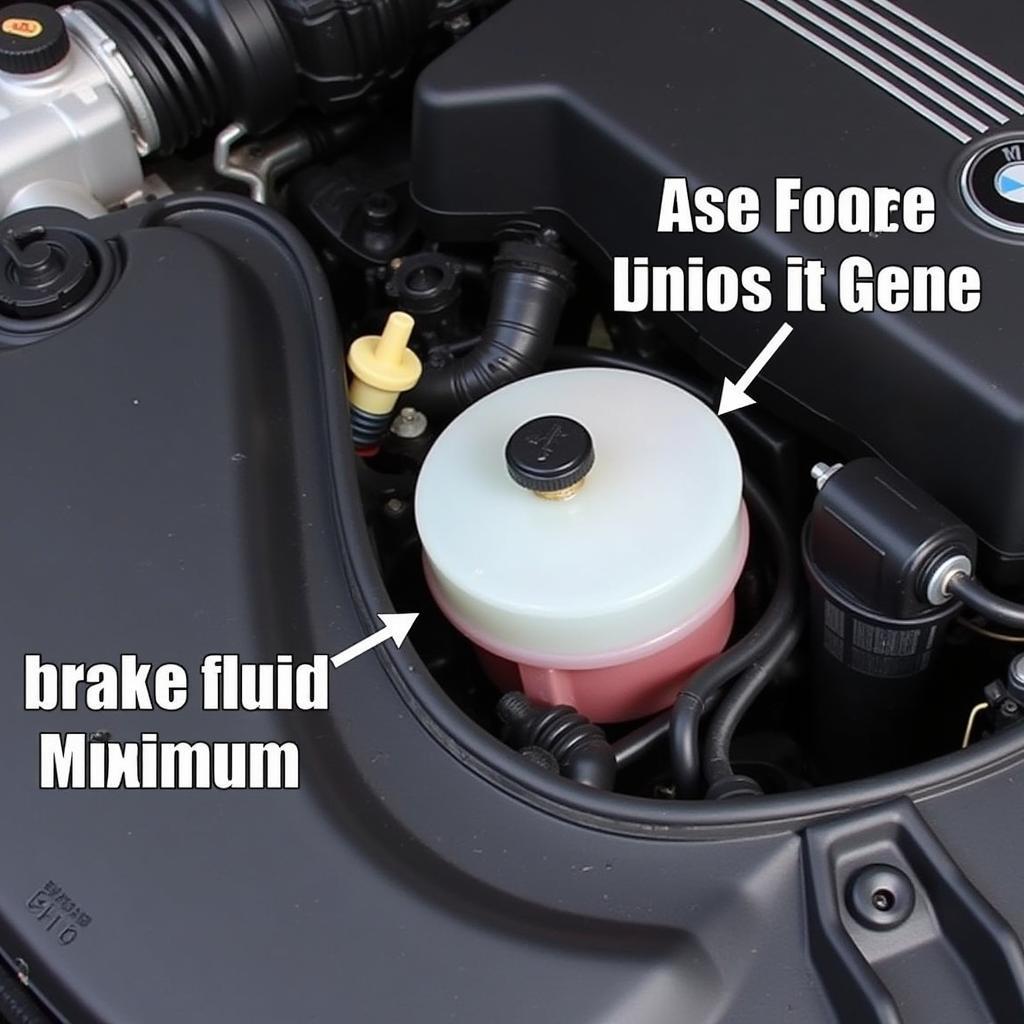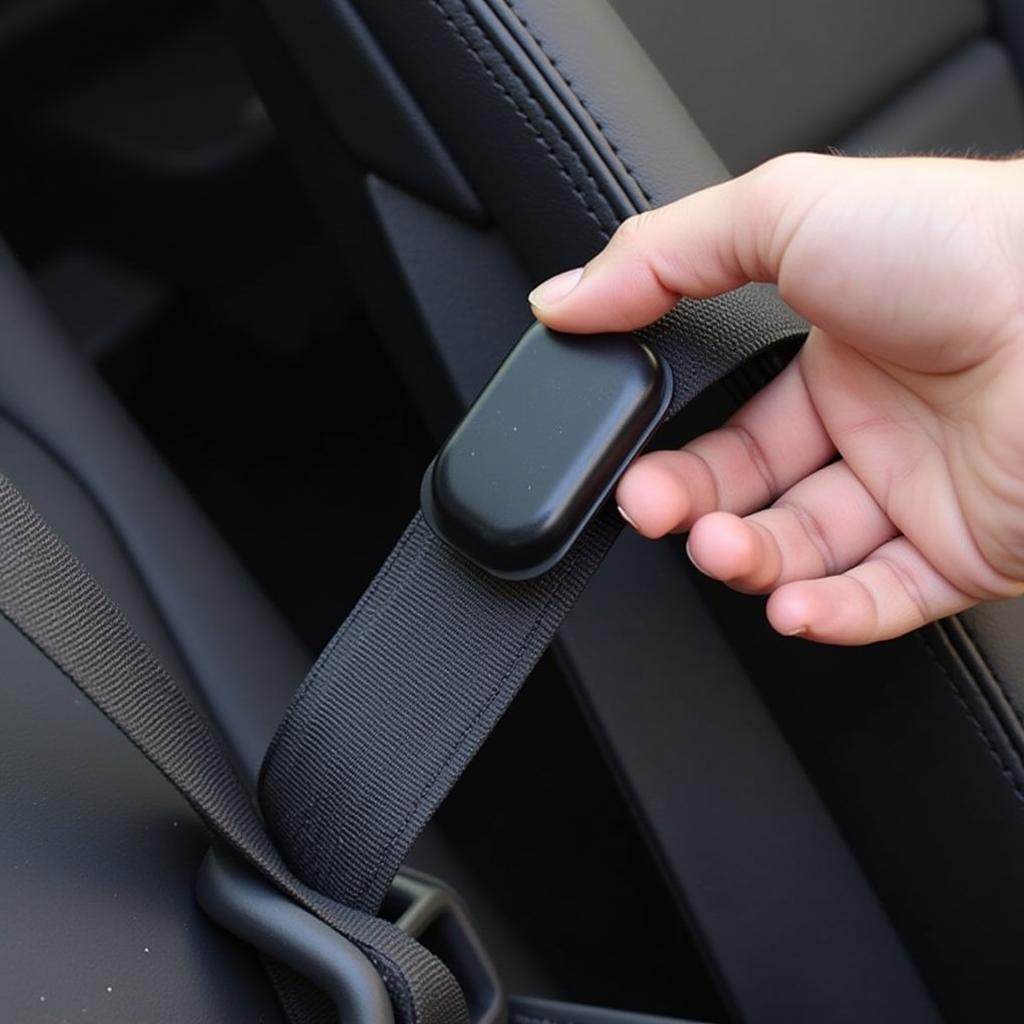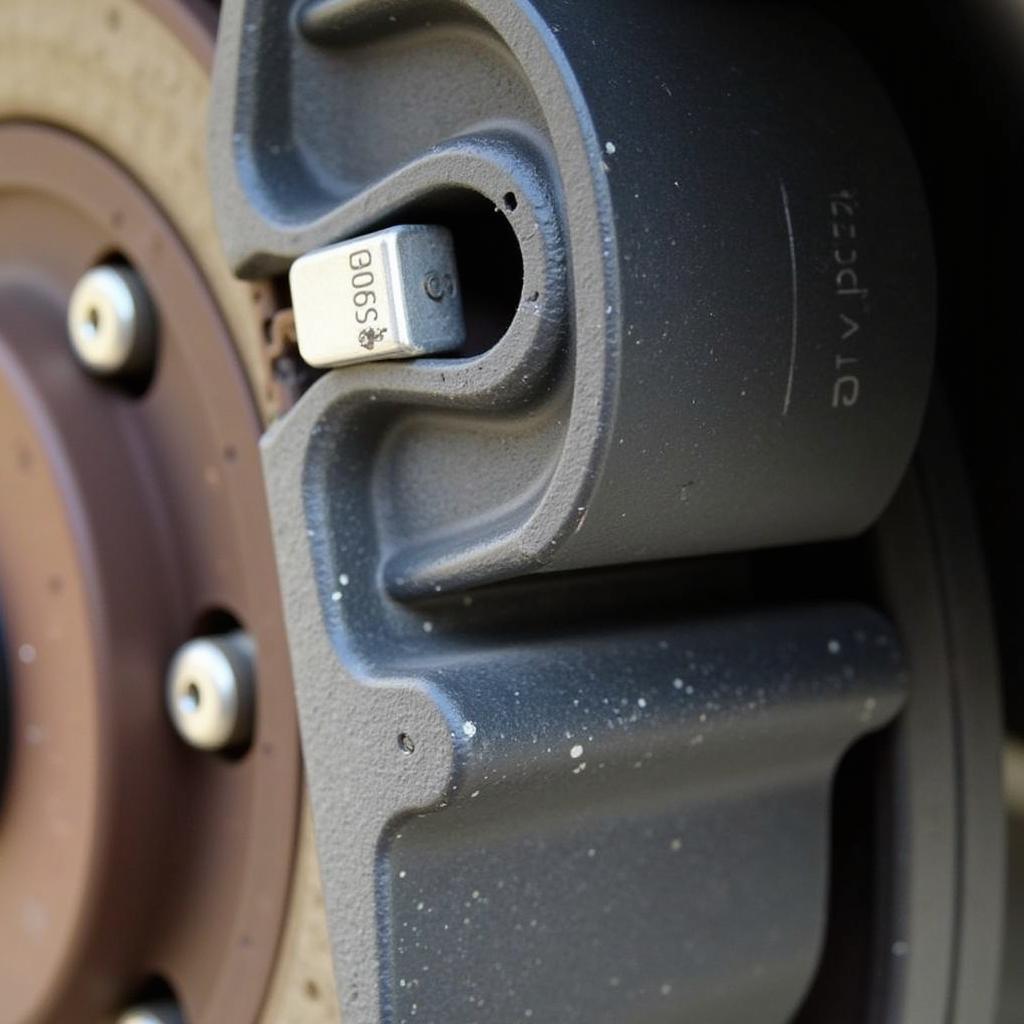The dreaded “brake fluid low” warning light illuminates your BMW E60’s dashboard. Your heart sinks. What does it mean? What should you do? This comprehensive guide addresses everything you need to know about the bmw e60 brake fluid warning, from diagnosis and solutions to preventative maintenance and remote software solutions.
Understanding the BMW E60 Brake Fluid Warning
This warning light is not something to ignore. It signals a potential issue with your braking system, a critical component for your safety on the road. The bmw e60 brake fluid warning can indicate several problems, from a minor leak to more serious issues within the braking system. Understanding the potential causes is the first step towards resolving the problem.
Possible Causes of the Warning Light
- Low Brake Fluid: The most common reason is simply low brake fluid. Brake fluid levels decrease naturally over time as brake pads wear down.
- Brake Fluid Leak: A leak anywhere in the system, from the master cylinder to the brake lines and calipers, can cause the fluid level to drop and trigger the warning.
- Worn Brake Pads: As your brake pads wear down, the brake calipers need to extend further to engage the rotors. This requires more brake fluid, which can trigger the warning even if there’s no leak.
- Faulty Brake Fluid Level Sensor: While less common, a malfunctioning sensor can incorrectly trigger the warning light even if the brake fluid level is adequate.
- ABS Module Issues: In some cases, problems with the Anti-lock Braking System (ABS) module can indirectly affect the brake fluid system and cause the warning light.
 BMW E60 Brake Fluid Reservoir Location
BMW E60 Brake Fluid Reservoir Location
Diagnosing the Problem
Before taking any action, it’s crucial to accurately diagnose the issue. A visual inspection is the first step. Check the brake fluid reservoir. Is the fluid level below the minimum mark? Look for signs of leakage around the reservoir, brake lines, and calipers.
Utilizing Remote Diagnostics and Software Solutions
Modern automotive technology allows for remote diagnostics and software programming. Specialized tools can access your BMW E60’s onboard computer and retrieve diagnostic trouble codes (DTCs) related to the braking system. These codes provide valuable insights into the specific problem, allowing for a more targeted and efficient repair.
“Remote diagnostics has revolutionized how we approach car repairs,” says Michael Schmidt, Lead Automotive Diagnostic Engineer at Bavarian Auto Solutions. “We can now pinpoint issues with incredible accuracy, saving time and money for our clients.”
Addressing the Brake Fluid Warning
Depending on the diagnosis, several solutions can address the bmw e60 brake fluid warning.
Topping off Brake Fluid
If the fluid level is low and there are no signs of a leak, topping off the reservoir with the correct DOT-approved brake fluid is a simple fix. However, this is a temporary solution. It’s essential to identify the underlying cause of the low fluid level to prevent further issues.
Repairing Brake Fluid Leaks
Leaks require immediate attention. Depending on the location and severity of the leak, the repair might involve replacing brake lines, calipers, or other components. This is best left to qualified mechanics.
Replacing Brake Pads
Worn brake pads are a routine maintenance item. Replacing them restores proper braking performance and addresses the underlying cause of low brake fluid levels.
Addressing ABS Module Issues
Problems with the ABS module can be complex and often require specialized diagnostic equipment and expertise. Remote software updates or module replacement may be necessary.
“Don’t underestimate the importance of regular brake maintenance,” advises Maria Sanchez, Senior Automotive Technician at German Auto Experts. “Addressing minor issues proactively can prevent major headaches and costly repairs down the line.”
Preventing Future Issues
Regular brake system inspections and maintenance are crucial for preventing future bmw e60 brake fluid warnings. Following the manufacturer’s recommended maintenance schedule, including regular brake fluid flushes and brake pad replacements, is essential for optimal braking system performance and safety.
Conclusion
The bmw e60 brake fluid warning is a serious indicator that shouldn’t be ignored. Understanding the potential causes and taking appropriate action is vital for your safety and the longevity of your vehicle. Utilizing remote diagnostics and software solutions can significantly improve the accuracy and efficiency of repairs. Regular maintenance and preventative measures are key to preventing future issues and ensuring a safe and reliable driving experience.
FAQ
- What type of brake fluid should I use in my BMW E60? Consult your owner’s manual for the specific DOT specification recommended for your vehicle.
- How often should I change my brake fluid? BMW typically recommends a brake fluid change every two years.
- Can I drive my BMW E60 with the brake fluid warning light on? It’s highly discouraged. Driving with low brake fluid can significantly compromise your braking ability and lead to dangerous situations.
- How much does it cost to fix a brake fluid leak? The cost varies depending on the location and severity of the leak.
- What are the symptoms of a faulty ABS module? Symptoms can include the ABS light illuminating, erratic braking behavior, and potential issues with other systems linked to the ABS.
- Can I check my brake fluid level myself? Yes, locate the brake fluid reservoir in your engine bay and check the fluid level against the minimum and maximum markings.
- How can remote diagnostics help with brake fluid issues? Remote diagnostics can retrieve specific diagnostic trouble codes related to your braking system, allowing mechanics to quickly and accurately identify the problem.


